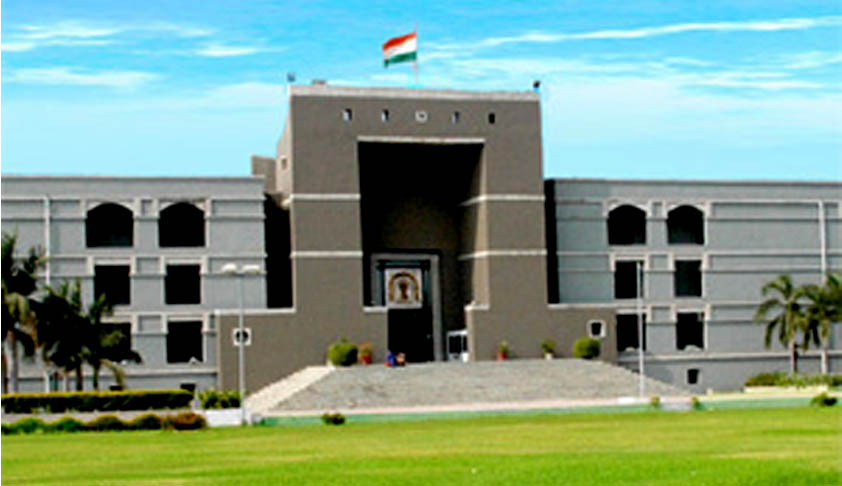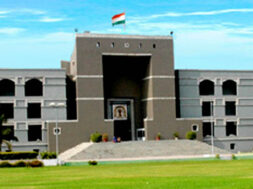
Manas Dasgupta
NEW DELHI, Mar 31: Allowing the Prime Minister Narendra Modi’s educational degrees to remain wrapped under a veil, the Gujarat High Court on Friday set aside a 2016 order of the Central Information Commission (CIC) to the Gujarat University to reveal the details of Modi’s degrees.
Stating that such information was not needed, the High Court also imposed a fine of Rs 25,000 on the Delhi chief minister Arvind Kejriwal for seeking details of Modi’s educational degrees. Refusing to stay the operation of the fine, Kejriwal was asked to deposit the fine amount with the Gujarat State Legal Services Authority within four weeks.
Reacting to the order and the fine, Kejriwal tweeted: “Does the country not have the right to know how educated their Prime Minister is? They vehemently opposed revealing his degree in court. Why? And the person asking to see the degree will be fined? What is happening? An uneducated or less educated PM is dangerous for the country.”
Justice Biren Vaishnav of Gujarat HC allowed the petition moved by the Gujarat University that had challenged the direction of CIC asking the varsity to furnish the details of Master in Arts (MA) degree of Prime Minister Narendra Modi under Right to Information Act (RTI) to Kejriwal. The High Court had completed the hearing of the case on February 9 and had reserved its order till Friday.
In 2016, the varsity had filed the petition challenging the CIC order on which the Solicitor General (SG) Tushar Mehta who appeared for the university contended that no student’s degree can be disclosed under the RTI as it violates the privacy of the individual. Mehta submitted that information about the PM’s degrees is “already in the public domain” and the university had also placed the details on its website in the past, and claimed the 2005 Act is being used for settling scores and to make “childish jabs” for political purposes.
Mehta had also argued that the university should not be compelled to disclose this information. “In a democracy, there won’t be a difference if a person holding the office is a doctorate or an illiterate. Also, there is no public interest involved in this issue. Even his privacy is affected,” the top government lawyer had said, insisting that the information on the PM’s degrees had no bearing on his role.
“We cannot be asked to furnish the information to satisfy someone’s childish and irresponsible curiosity,” Mr Mehta said. The Solicitor General also said information requested under RTI should be related to public activity. “They cannot ask what breakfast I had. But yes, they can ask what amount was spent for the breakfast,” he remarked.
Citing some past judgments of the Supreme Court and by other HCs about the exemptions granted under section 8 of the RTI Act, Mehta said one cannot seek someone’s personal information “just because you are curious about it.” “One can seek information if it falls in the category of larger public interest. But you cannot seek private information not related to my public activity. Just because the public is interested in it, it cannot become public interest. Courts’ interpretation has established that education qualification is personal information, whether it is of a politician or any other person,” he contended before Justice Biren Vaishnav.
Responding to Mr. Mehta, senior advocate Percy Kavina, appearing for Delhi Chief Minister Arvind Kejriwal, told the court that information about the PM’s degrees was not available in the public domain as claimed by the solicitor general. In his submission, he asked what prompted the university to challenge the order of the CIC. According to him, the PMO should have challenged the order if it was aggrieved with the CIC’s order.
Modi’s election documents say he graduated from Gujarat University in 1978 and completed his Master’s degree from Delhi University in 1983.
According to the details of the case, in July 2016, the Gujarat HC stayed the CIC’s order of April, 2016, directing the Delhi University and the Gujarat University to provide information on degrees earned by Modi to the AAP leader. The directive was issued by the then-CIC M Sridhar Acharyulu. The CIC’s order came a day after Kejriwal wrote to Acharyulu saying he has no objection to government records about him being made public and wondered why the commission wanted to “hide” information on Modi’s educational qualifications.
The BJP hen had attempted to put an end to the controversy regarding Modi’s graduation and post-graduation degrees following questions raised by Kejriwal. The party had made Modi’s degree certificates and corresponding mark-sheets and had accused the Delhi chief minister and his Aam Aadmi Party and other opposition parties for “plumbing unprecedented depths in public disclosures,” but many people had found a lot of loopholes in the party’s claims over the prime minister’s educational qualifications.
On April 28, 2016, Kejriwal had requested the CIC while hearing of a second appeal under RTI Act, to order Delhi University to facilitate the disclosure of the information about the degree of Modi even though the main issue of the said second appeal was supply of information of transportation of Electoral Photo Identity Card (EPIC) of Kejriwal.
Kejriwal was presented with an opportunity of hearing by the CIC and the former had not objected to the same, although at the same time he raised a demand for information about PM Modi’s educational qualifications. Kejriwal had alleged in his submissions before the CIC that while CIC wanted Kejriwal’s information to be given, the body was obstructing information about degrees of Modi.
The then CIC in his order on April 29, 2016, after considering Kejriwal’s request, had held that “when a citizen holding the position of a chief ministership wants to know the degree related information of the Prime Minister, it will be proper to disclose.” The CIC had thus directed the “the Prime Minister’s Office (PMO), and the PIOs of Delhi University and Gujarat University, Ahmadabad, to make best possible search for the information regarding the degrees in the name of “Mr Narendra Damodar Modi” in the year 1978 (Graduation in GU) and 1983 (Post Graduation in DU) and provide it to the appellant Kejriwal as soon as possible.”
This order was then challenged by GU after it received the CIC’s order on May 4, 2016, before the Gujarat HC. GU had submitted before the Gujarat HC that the CIC order was “without jurisdiction, erroneous and requires to be quashed and set aside.”
The GU had contended that the CIC’s order was passed without hearing GU, no specific application to the effect of seeking details of educational qualifications of PM Modi was made, and that the CIC’s jurisdiction extended to the public authorities under the Central government and thus GU would not fall in its jurisdiction.
Meanwhile, Eight people have been arrested for putting “Modi Hatao, Desh Bachao” posters in different areas of Ahmedabad. The arrests come just a day after the AAP launched a nationwide poster campaign against Modi.
According to the Ahmedabad Police, a case has been registered for putting up “objectionable posters” in various parts of the city in an “unauthorised manner” and further probe into the matter is underway.
Gujarat AAP chief Isudan Gadhvi said those who were arrested are party workers. Gadhvi accused the BJP of “dictatorship” and claimed that the arrests are a sign that the party is “scared.”
The AAP’s “Modi Hatao, Desh Bachao” campaign was launched in 11 languages across the country. Besides English, Hindi and Urdu, posters have been released in Gujarati, Punjabi, Telugu, Bengali, Oriya, Kannada, Malayalam and Marathi as well. Last week, thousands of posters targetting the PM appeared on walls in the national capital, triggering a massive police crackdown in which 49 FIRs were registered and six people were arrested. Two of the men arrested owned a printing press.
The Delhi Police had said the arrests were made for defacing public property and for the fact that the posters did not carry the name of the printing press where they were printed, as required by law. Responding to the arrests, Kejriwal had said even the British did not arrest those who put up posters against them during the independence movement.













